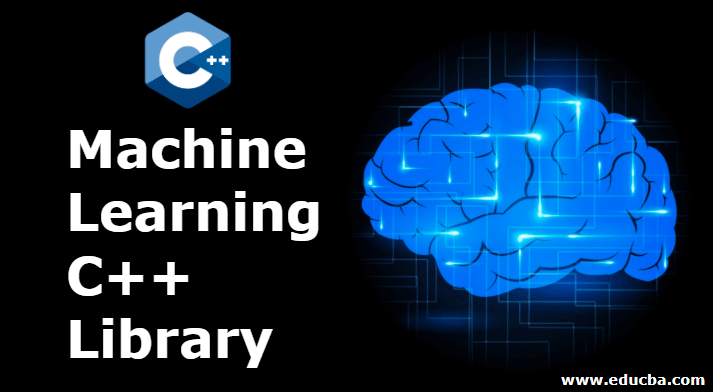Updated March 22, 2023
Introduction to Machine Learning C++ Library
The following article provides an outline for Machine Learning C++ Library. C++ being the first language by most of programmers is not preferable when it comes to data analysis and machine learning, as it is comparatively hard to understand with respect to python and R, programmers might opt to use it because of its speed and capability of running on embedded system, in this case it’s good to note that C++ comes with lot of libraries like mlpack, tensorflow, dlib, pytorch, opencv, eigen, DyNet, etc. which helps the programmer in implementing machine learning algorithm.
Concepts of Machine Learning C++
To start getting comfortable with machine learning you must have knowledge about the following concepts:
- Programming languages
- Linear algebra
- Statistics
- Probability
- Calculus
1. Programming Languages
To implement machine learning algorithms into your software product or machine, you must be familiar with programming languages like Python, R, etc. It is important to have sound knowledge about these languages because they are used for implementing a complete machine learning process. Both are easy to learn and implement as they have inbuilt library modules that make the whole process easier and faster than any other language.
2. Linear Algebra
We all have studied Linear algebra in school time as it is the center of all operations you can perform in mathematics. Widely used in real life and a good example. It is used in science and technology which gives us the ability to perform various natural operations with efficiency with a linear set of equations we can compute output and also for future predictions. Matrices, Vectors, and Linear transformations are dealt with Linear Algebra. It is used to perform and transform different operations on the dataset.
3. Statistics
Statistics is also the most important part of not only machine learning but to every aspect of real life. It’s a mathematic branch that is concerned with transforming any raw data into some useful information as an output. Just a small sample from the dataset can give large information in output using a statistics tool. Mostly statistics is concerned with interpreting, organizing, collecting, displaying, analyzing, and presentation of data.
4. Probability
This is used widely in machine learning because you can guarantee what will happen next when you give some input into your software or consider any phenomena but you can always predict what can happen at a certain level or we can say what most likely to happen, that is a probability, means something is about to happen. It helps in predicting the most likable outcome of any event that is occurring. As an outcome of a probability will always lie between 0 and 1 where 0 defies an impossible event and 1 defies certainty.
5. Calculus
Calculus is the most integral part of any machine learning process as it sounds, means calculating. It is related to continuous change in mathematics calculations. It has two parts, one is Integral while the other is Differential calculus. Calculus is widely used to develop a machine learning model. With the availability of large datasets, a machine can be designed by performing continuous calculations on datasets.
Recommended Articles
This has been a guide to the Machine Learning C++ Library. Here we also discuss the overview of the machine learning C++ library along with the top 5 ML concepts. You may also have a look at the following articles to learn more –



